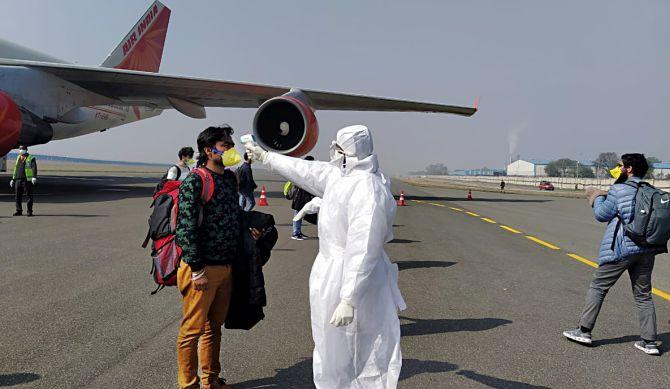Aircraft lease rentals are fixed costs and account for around 15 per cent of an airline’s expense and since these are paid in dollars are also subject to currency fluctuations.

Domestic airlines are seeking deferral in lease rent by six months and a reduction in rates from lessors, but might get only limited relief based on their financial health and commercial relations, aviation sources said.
“We are working with select airlines on deferral packages to help them through this period.
"We are offering up to 50 per cent reduction in rent for about three months with this being repaid over the second half of 2020,” BOC Aviation, a lessor, said.
BOC Aviation said it is also executing purchase and lease back transactions with top-tier airlines, providing them with liquidity, but is yet to conclude any such transaction with an Indian carrier since outbreak of the coronavirus disease (COVID-19).
Its customers in India include GoAir, IndiGo, SpiceJet and Vistara.
GE Capital Aviation Services (Gecas), another lessor, declined to comment.
Aircraft lease rentals are fixed costs and account for around 15 per cent of an airline’s expense and since these are paid in dollars are also subject to currency fluctuations.
“We are in discussion for rent holidays and deferment of lease contracts.
"Currently, across the world lessors are willing to give concessions as there is very little demand of aircraft and practically all airlines are asking for similar concessions,” SpiceJet chairman Ajay Singh told Business Standard.
In a staff email last week, Leslie Thng, Vistara CEO, said the airline was successful in deferring and reducing its operating expenses through negotiations with some of suppliers. Vistara declined to comment.
Both GoAir and SpiceJet are also looking for an early return of their older planes.
The Indian government banned all passenger flights on March 24 and the resumption date has not been announced yet.
Even after the lockdown is lifted, airlines are looking to start with a limited number of flights.
Last year, SpiceJet took 31 ex-Jet Airways planes on lease.
These planes had helped SpiceJet fill in the capacity gap caused by grounding of Boeing 737 Max, but now it is mulling an early return of some planes.
Over 60 per cent of global aircraft fleet (16,000 planes) is grounded and demand for fresh leases is at an all-time low.
In this backdrop, Indian airlines are trying to drive a hard bargain.
“Who will the lessors give the planes to?” a senior airline executive asked.
On their part, lessors are adopting a wait and watch stance.
“Usually aircraft leases are strictly worded and have a hell or high water clause which requires strict compliance.
"This includes timely payment of rent, maintenance charges, inspections, submission of reports.
"In the current scenario, I doubt any lessor would precipitate action.
"In case a lessee was in default before the lockdown, the attitude of the lessor or owner would be less lenient,” said Ravi Nath, chairman of law firm RNC Legal.
“Airlines are seeking relief for six months and permanent rent reductions.
"These are not practical and are unlikely to be accepted,” an executive from a leasing firm said.
“Lease defaults are happening globally, but the big concern of lessors is recovery and repossession of an aircraft in case of closure of an airline in India,” said aviation consultant Vishok Mansingh.
Photograph: ANI Photo












 © 2025
© 2025